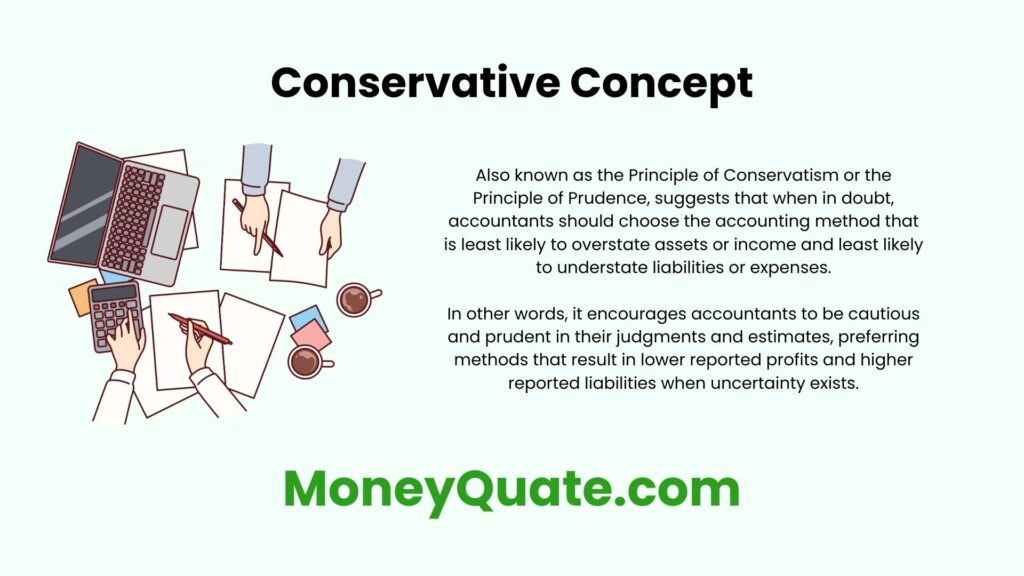Ever plan a surprise party? You wouldn’t just buy enough snacks for the RSVPs, right? You’d grab some extras “just in case.” That’s the idea behind the conservatism concept in accounting – it’s about being safe!
As accountants, we’re all about making sure the financial statements we prepare are realistic, even if it means being a little less optimistic.
Here’s the why:

Contents
Why Play it Safe Using The Conservatism Concept?
Financial statements are like a company’s report card.
People who invest in the company, loan it money, and others like that use this info to make big decisions.
The conservatism concept helps us avoid making the company look way better than it really is.
Think of it like this:
Losses: We see a potential loss coming, like a product that’s not selling well?
We might set aside some money as a “loss provision” even if it’s not guaranteed. Better safe than sorry!
Gains: We’re a little slower to celebrate potential wins.
Maybe a new product launch is looking good?
We wouldn’t record a huge profit until we’re absolutely sure it’s a hit. This keeps expectations realistic.
Real-life Examples of The Conservatism Concept
Let’s see how this conservatism concept works in everyday accounting:
A customer owes your company money, but you’re not sure if you’ll ever get it all back.
The conservatism concept says estimate the amount you won’t collect (bad debt) and record it as an expense right away.
This makes your financial statements show a more realistic picture of how much money you’re owed.
Imagine your company sells phones. Suddenly, a new competitor arrives, and phone prices might drop.
The conservatism concept might say to value your phone stock at the lower, discounted price.
This way, your financial statements show a more cautious view of how much your inventory is worth.
Benefits of Being Careful Using The Conservatism Concept
By using the conservatism concept, we create some good things:
- More Trust: Investors and others can trust that the financial statements are realistic, not overly optimistic. This helps them make better decisions.
- Fewer Surprises: No one likes unexpected losses. Recognizing potential problems early helps companies prepare for them, avoiding nasty financial surprises later.
- Clear Communication: The conservatism concept promotes clear communication by acknowledging both potential downsides and upsides. This builds trust with stakeholders.
The Takeaway
The conservatism concept might sound negative, but it’s actually a responsible way of reporting.
By taking a cautious approach, we make sure the financial statements give a reliable and unbiased picture of a company’s financial health.
It’s like planning that surprise party – better to be safe than sorry!